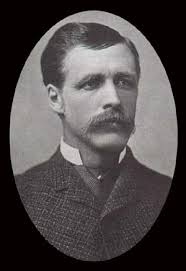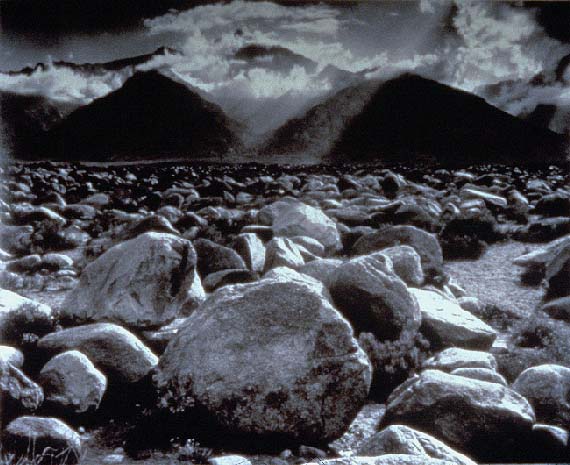
William Henry Jackson (April 4, 1843 - June 30, 1942) was an American painter, photographer and explorer famous for his images of the American West.
At age 15, he landed his first job, as a re-toucher, in the new and growing field of photography. A native of Vermont, Jackson was mustered into the Union army to help fight the "War of Secession." After a year with the Army of the Potomac in Washington, D.C., Fairfax Courthouse, and Gettysburg, he returned home.
Shortly after his return home a broken heart precipitated by a broken engagement led Jackson to leave Vermont, bumming his way to St. Joseph, Missouri. He worked his way west by "bullwacking" freight wagons to Salt Lake City, then recrossed the nation driving mustangs from Los Angeles to Omaha. There he and his brother, Ed, opened Jackson Brothers Photography.
 Expeditions were important in documenting uncharted areas within the United States and the federal government sponsored diverse groups of artists, scientists, and soldiers to explore areas and to report on its resources. Among those Jackson joined up with was led by geologist Ferdinand Vandiveer Hayden to explore the Yellowstone Lake area.
Expeditions were important in documenting uncharted areas within the United States and the federal government sponsored diverse groups of artists, scientists, and soldiers to explore areas and to report on its resources. Among those Jackson joined up with was led by geologist Ferdinand Vandiveer Hayden to explore the Yellowstone Lake area.Hayden's expedition included illustrators, a mineralogist, and a topographer. The natural beauty depicted by the artists, including Jackson's many photographs, helped to convince Congress to establish the area as a national park in 1872.
He was a great-great nephew of Samuel Wilson, the progenitor of America's national symbol Uncle Sam.



No comments:
Post a Comment